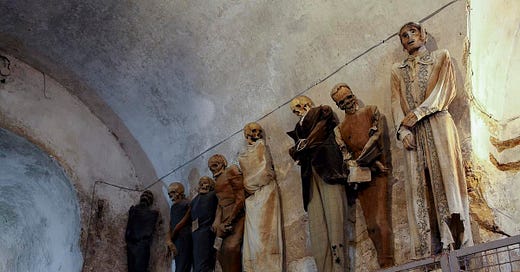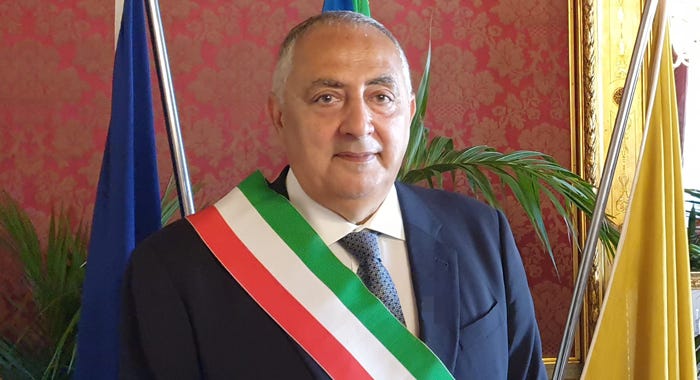Roberto Lagalla, the mayor of Palermo, is a very happy man. He has been mayor for a year, and he has carried out one of his election promises. He has solved the crisis that was engulfing the city’s biggest cemetery, that of Rotoli, which lies just under Monte Pellegrino.
For years there was simply not enough room in the cemetery. As a result, bodies and coffins were stockpiled in tents and storage rooms awaiting burial, at one time over 1,600 of them. Moreover, the crematorium ovens had been on the blink since 2020, which was not good. Now, the last coffin has been buried, for which Mr Lagalla can take the credit. As he rightly says what was a ‘national disgrace’ has been sorted out.
The various reports that I have read, (see here and here for example, all in Italian) do not quite spell out what steps were taken to solve the shortage of space. How do you create space in a cemetery? I think I can guess. You empty out all the abandoned tombs, and put their contents into ossuaries, and then you refurbish and reuse the old tombs.
What the Mayor also did was hand the management of the cemetery to a special commissioner who had extraordinary powers, in this case one Angelo Martorana, an inspector of the municipal police, Italy’s traffic cops. This practice, what the ANSA reports calls ‘commissariare’ (As in: ‘È singolare che in Italia sia necessario commissariare per raggiungere il risultato’ ; “In Italy it is strange, but to get results, you have to impose a commission”) is common in the south of Italy, and what it means is this: the powers above revoke the powers that they have previously devolved and parachute in someone who can do the job, and who, needless to say, is not elected.
This happened in Reggio di Calabria on 9th October 2012: the entire city administration was sacked by central government because of suspected infiltration by organised crime, and a special unelected commission ran the city for 18 months before new elections were called. Incidentally this sort of thing used to be fairly routine in the British Empire. Colonies would be granted self-government, and then, for some reason or another, self-government would be revoked. This happened, for example, in Malta, twice, in 1933 and 1959. However, while that was political, we all know, or think we know, that in Italy these commissions are formed when it becomes clear that the Mafia has infiltrated something, in this case, the cemetery management. The possibilities for crime in cemetery management are huge, which is something I will be dealing with in my great Sicilian roman fleuve.
The people of Palermo will now be able to visit their dead in peace and quiet, and Mr Lagalla can take the credit. He is a former rector of the University of Palermo, and his wife is the daughter of an orthopaedic surgeon who just happens to be the brother of a senior Mafia boss from Agrigento, Antonio Ferro, but, as the Mayor has made clear, he does not know this embarrassing relative by marriage at all. This came out in the election campaign, so the people of Palermo, in voting for Mr Lagalla, were in full possession of the facts. But at the same time, it makes you realise, that no one in Sicily, simply no one, is more than a couple of removes from the tentacles of organised crime.






